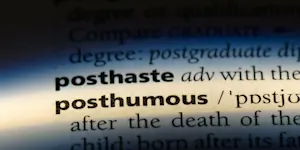What Makes This Word Tick
Ah, "naive" — a word that captures the essence of innocence and simplicity. It's often used to describe a person lacking experience or worldly wisdom. This charming adjective has a gentle sound to it, as if inviting us to approach the world with wide-eyed wonder. It often evokes images of youthful exuberance and honest intentions.
If Naive Were a Person…
Imagine a young artist who paints with bright, bold colors, unafraid of criticism and full of dreams. This person wears their heart on their sleeve, trusts others without hesitation, and finds beauty in the mundane. They might have a child's curiosity and an optimistic outlook on life.
How This Word Has Changed Over Time
Historically, "naive" has maintained its association with innocence. However, as the world has grown more complex, the word has sometimes taken on a slightly more negative connotation, suggesting gullibility or a lack of sophistication. It's a reflection of how the world values knowledge and experience over a simple, trusting nature.
Old Sayings and Proverbs That Use Naive
Though "naive" itself isn't commonly found in old proverbs, its spirit is alive in the saying, "Innocence is bliss." This proverb captures the essence of naivety — the idea that not knowing can sometimes lead to a carefree existence.
Surprising Facts About Naive
Did you know that "naive" shares the same Latin root as "Native"? Both words originate from “nativus,” meaning "natural" or "of birth." It's fascinating how words evolve from the same root to take on meanings that link to origin, authenticity, and simplicity.
Out and About With This Word
Next time you're walking through a modern art gallery, think about how many of the works embrace a naive style — bright colors, straightforward forms, and an utterly sincere approach to art. Naivety can be a powerful force in creativity, offering a fresh perspective unhindered by convention.
Pop Culture Moments Where Naive Was Used
Remember the famous movie character Forrest Gump? His naivety was portrayed as a strength throughout the film, serving as a reminder that a pure heart and good intentions can lead to extraordinary stories and achievements.
The Word in Literature
Naive characters often populate the pages of coming-of-age novels, where their lack of experience leads to pivotal discoveries and personal growth. Authors such as J.D. Salinger and Harper Lee have written characters who naively explore the world, highlighting the beauty and pitfalls of innocence.
Moments in History with Naive
The Summer of Love in 1967 perfectly encapsulates the spirit of naivety. Young people gathered in San Francisco, filled with ideas of peace and love, often lacking a full understanding of the political and social complexities of the time. Their idealistic dreams brought about waves of cultural change.
This Word Around the World
In French, "naïf" or "naïve" shares the same meaning and has nearly the same pronunciation as in English, emphasizing a universal appreciation for innocence. In Japanese culture, a similar concept is captured by the term "junsuina," meaning pure or simple-hearted, which carries a similar nuance of untainted perspective.
Where Does It Come From?
"Naive" entered the English language from the French word naïf, which originated from the Latin “nativus.” Over time, it came to describe not only the purity of something natural but also the artless trustfulness found in those untouched by cynicism.
How People Misuse This Word
Some folks mistakenly use "naive" when they really mean "gullible." While both deal with a lack of skepticism, "naive" leans more towards innocence, whereas "gullible" implies being easily fooled.
Words It’s Often Confused With
Gullible: Suggests being easily tricked or deceived, whereas "naive" is more about innocence.
Innocent: While similar, "innocent" often refers to the absence of guilt rather than experience or wisdom.
Uninformed: This implies a lack of information, whereas "naive" suggests simplicity despite awareness.
Additional Synonyms and Antonyms
Synonyms include artless, trusting, and unsophisticated. Antonyms would be worldly, cynical, and experienced.
Want to Try It Out in a Sentence?
"Though Maria's view of the world was sometimes considered naive by her friends, her optimism and trust in others often illuminated their lives with unexpected joy."
















